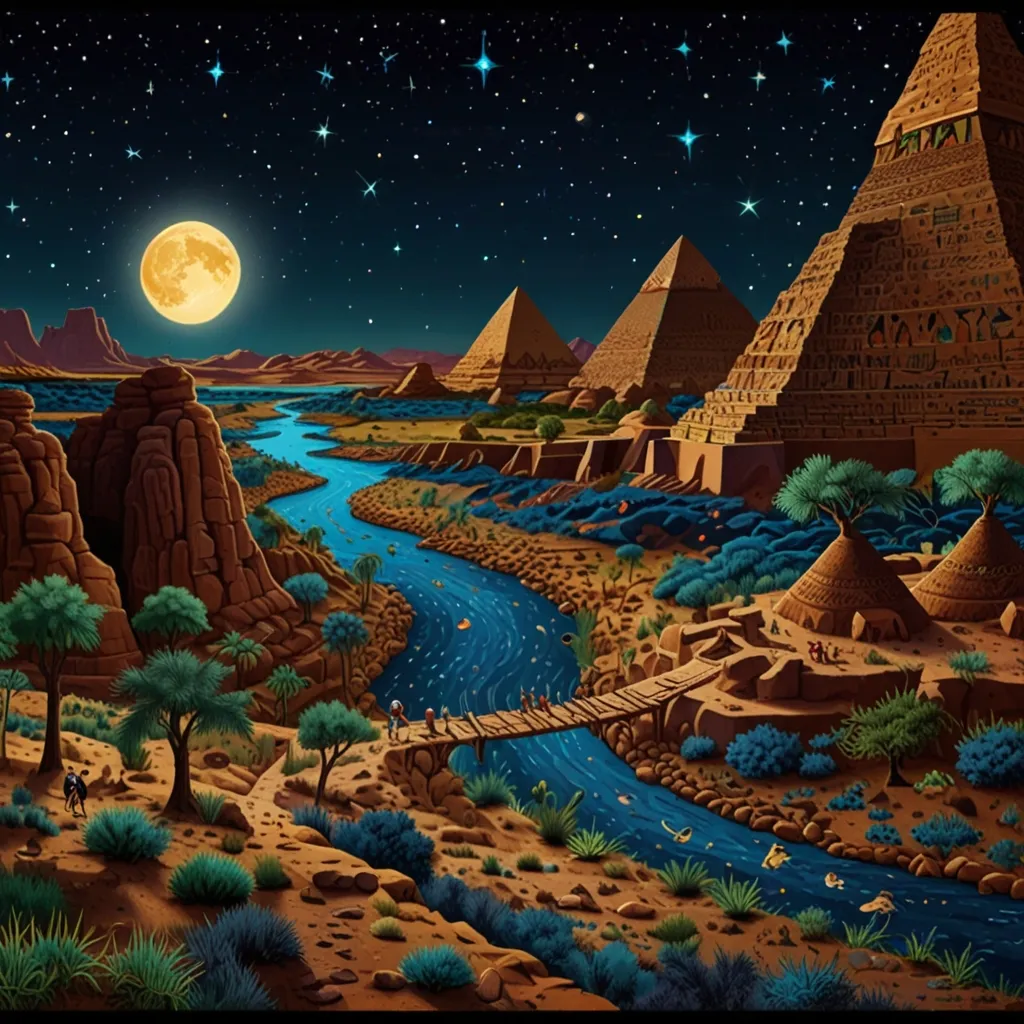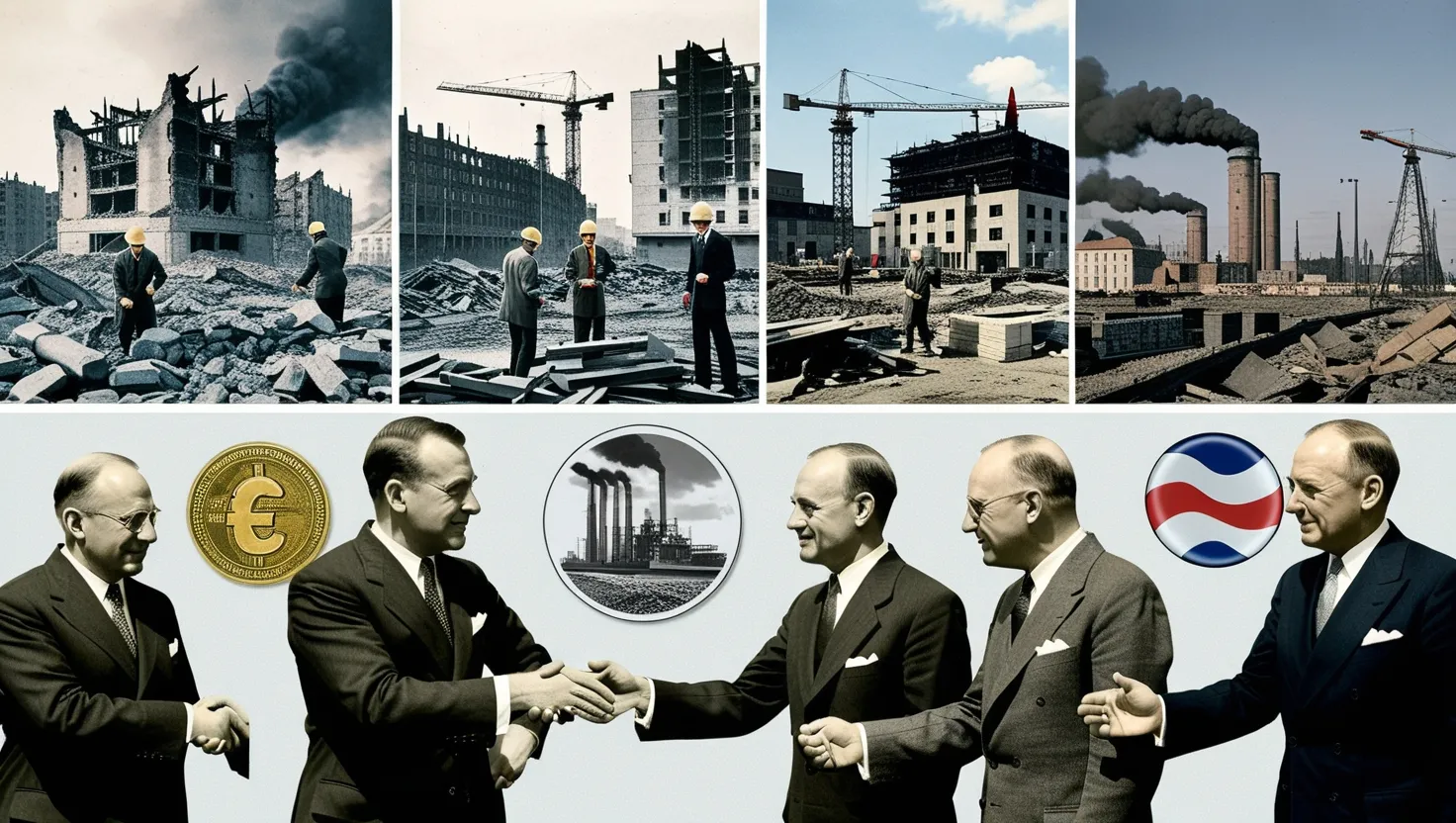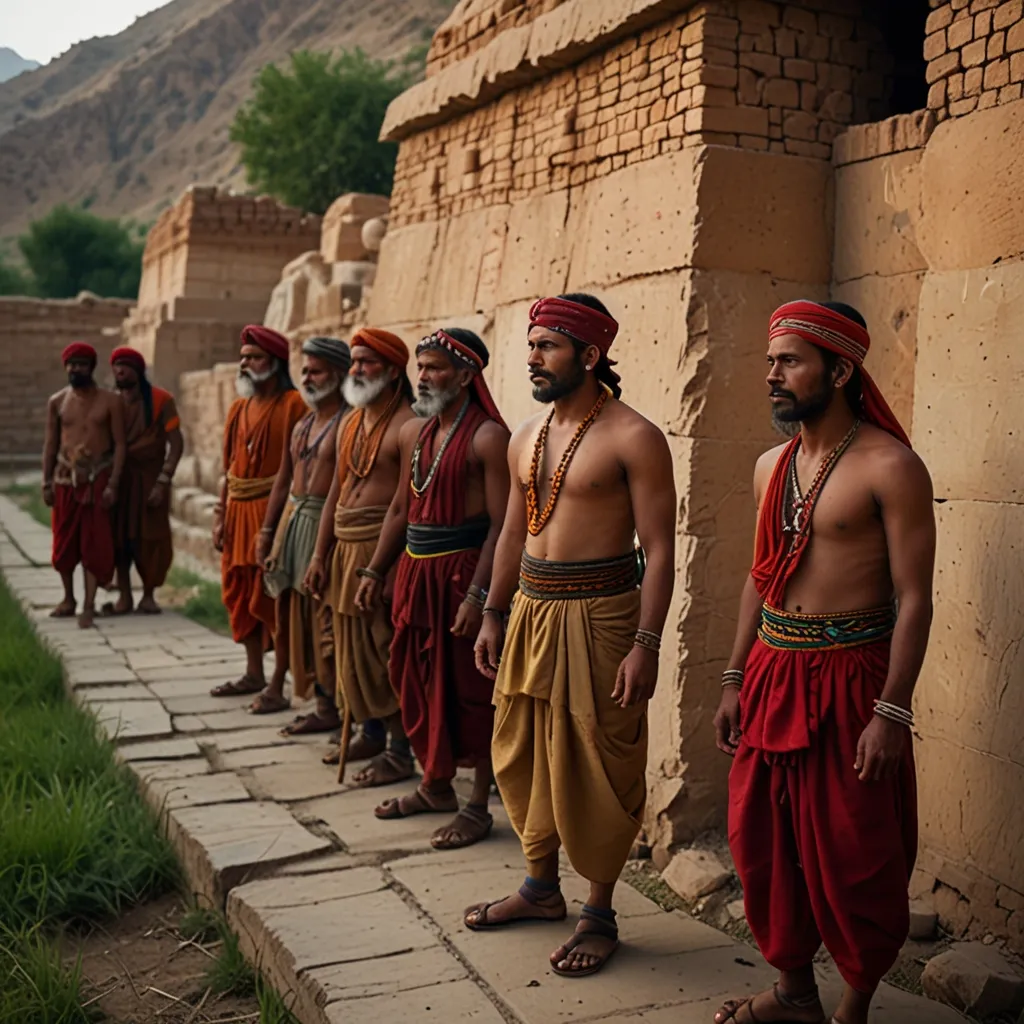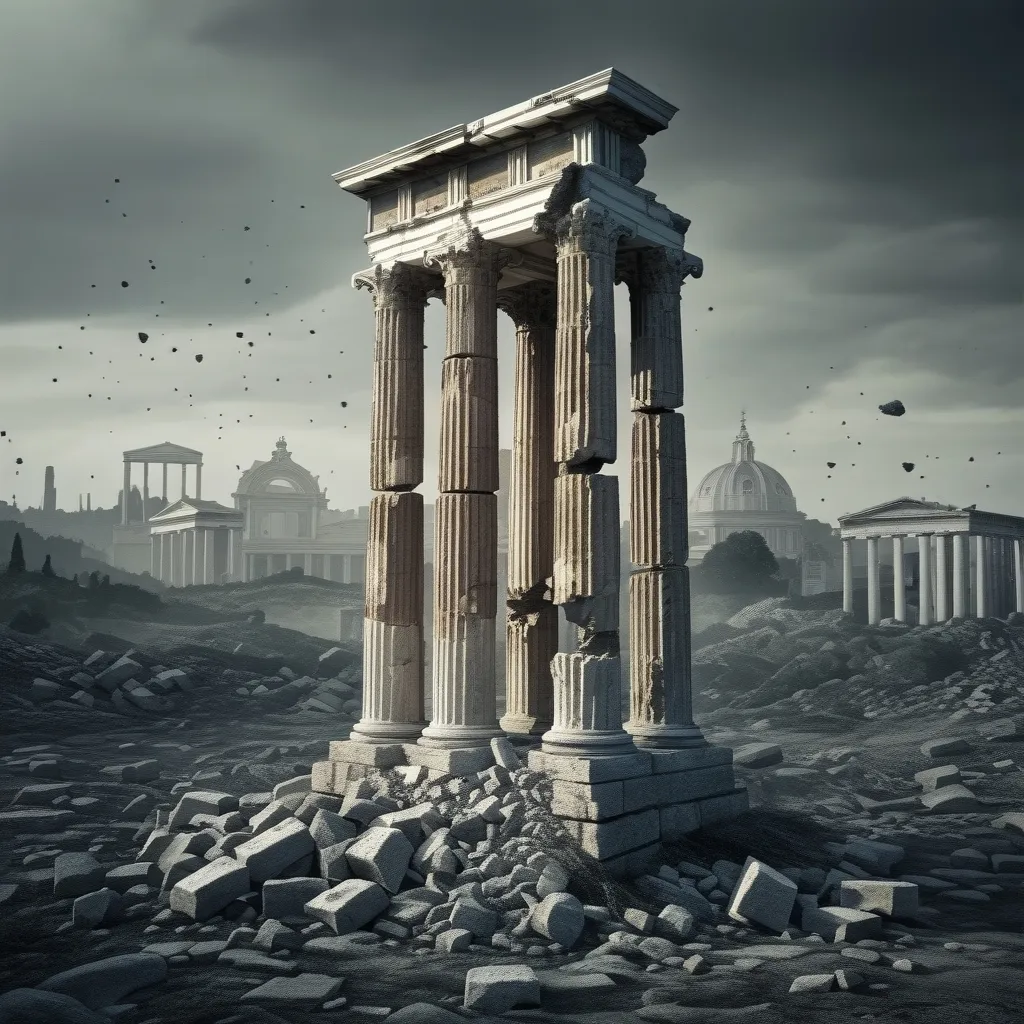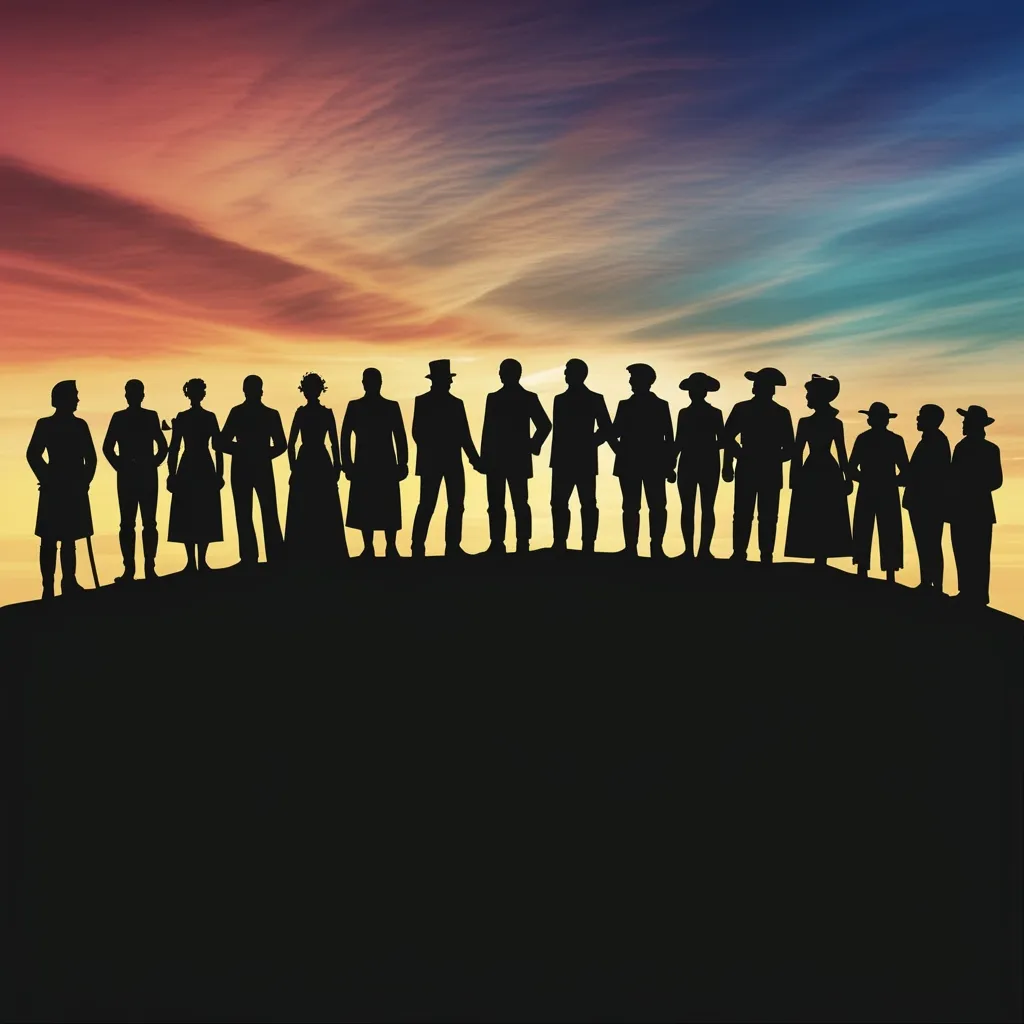A journey through time stretching back billions of years brings us to a tiny speck in the cosmic landscape from where our story truly begins. Imagine Earth’s primitive face, cradling its fledgling atoms like an ever-watchful sentinel. Fast forward, and life takes its first tentative steps in the form of hominids—our distant, distant relatives. These brave adventurers stepped out of Africa, marking Homo erectus’ path across the world, driven by survival instincts and spurred on by the unknown.
The human saga unfolded through millennia of trial and error, like a child learning to walk. Then as the millennia ticked away, newer chapters began scripting. Civilization blossomed somewhere tucked between the mighty Tigris and Euphrates rivers, where Sumerians decided they’d had enough of wandering and began to plant the seeds of agriculture. The city of Uric burgeoned with a population that stood at the dawn of human collectivity and urbanization, a far cry from the forager tribes of yore.
An intriguing side effect of this agricultural dawn was our physical transformation. People of these nascent cities started to shrink a tad, losing some inches from their height. Man transitioned from brawny man-hunters to farmland dwellers, relinquishing brawn for the burgeoning brainwork needed to run societies.
Our archaeological and anthropological treasure trails scattered through Mesopotamia weave fascinating tales. Legend has it, during the 3000s BCE, King Gilgamesh reigned supreme, embarking on a quest teeming with wisdom and waterlogged tales of a great deluge. As empires rose, like the Akkadians under Sargon the Great, civilization marched ever forward. Parallel reveals in the Indus Valley shed light on an advanced society adept at domestic engineering, evidenced by the ancient toilets connected by a network of sewage systems.
Down south, Egypt was engaged in a grand project to create a bridge between mortal life and eternity—pyramids as the pharaohs’ stairways to the afterlife. These magnificent structures, such as the Great Pyramid of Giza, were meticulously erected stone by stone, a testimony to the ineffable human spirit dedicated to immortality, echoed through brick and sand.
In the pages of early Chinese history, a fellow named Yu the Great faced tumultuous rivers threatening his people with famines. His foresight and engineering genius led to the establishment of the Xia Dynasty, built upon merit and intellect rather than mere might—a revered precedent that would ripple throughout history.
Slide westward to Babylon about 1772 BCE, where legalistic thought was carved into stone—Hammurabi’s code, the bedrock of social order, fairness, and early humankind’s appreciation for organized society. A civilization fraught with intent, defining penalties, and charting pathways that birthed structured societal existence.
Around this time, lesser-known but equally vibrant societies, from the Hittites to the Mycenaeans, were shaping Europe with conquests, diplomacy, and cultural imprints. Each city-state, like characters in an epic, distinguished itself through military prowess and elaborate political treks.
Egypt created a social pyramid of another kind, where hierarchies mirrored the monumental architecture. Everybody had a role to play, from the peasant pinning down both ends of civilization’s farmsteads, to the pharaohs sequestered in their gilded thrones—arbiters between mortals and gods.
As civilization continued rising and falling like ocean tides, empires stretched their shadows over terrains far and wide—the Persian Empire notably expanded with Cyrus the Great wielding conquests rooted deeper South; it was a tapestry of human toil entwined with tactical diplomacy and monumental aspirations.
Crossing into Europe’s fertile landscape, city-states in ancient Greece began stirring under burgeoning wealth and ideas. As Greece danced on democracy’s emerging tune, Rome was being brewed into existence by legends of swords and founding brothers, setting up a republic that would eventually transmogrify into the famed empire.
Civilizations danced to utterly different drums, their syncopated rhythms contributing diverse flavors to the historical symphony. From the indomitable might of empires to the fragile philosophies that softly underpinned their power, human society continued to evolve. The myths and monuments left in history’s wake bear witness to humanity’s indelible footprints forged through struggle, unity, fragmentation, and insatiable curiosity.
Amid this tapestry of evolution, contradictions and collaborations persist—demonstrations of humankind’s capability for grandeur and folly alike. Histories that flowed from Mesopotamian deserts through Egyptian sands, over Greek city-states, across Chinese dynasties, and into the vast reaches of the Americas echo with the ceaseless quest for meaning, permanence, and legacy.
